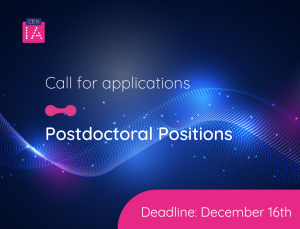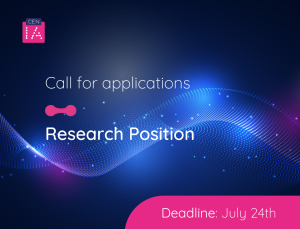
Dr. Álvaro Soto, director of the National Center for Artificial Intelligence (Cenia)
The debate on artificial intelligence and the jobs of the future tends to be narrowed down to the ability of machines to replace humans. A new episode, perhaps one of the most surprising in recent times among the apocalyptic projections that address this challenge, came after the publication of a report by three prestigious U.S. universities.
The report defines the 20 jobs that will eventually be most threatened by the technologies of the 4.0 revolution, including mainly teaching. In fact, 75% of them correspond to teachers. One of the areas mentioned, for example, is languages. Considering the progress that new digital tools are having in delivering increasingly sophisticated translation services, there is some logic in the analysis. But the truth is that, once again, the debate is limited to issues that are still superficial.
Just as the dawn of the internet – and the enormous availability of information on the web – did not put an end to formal education and books, artificial intelligence will not replace teachers. On the contrary, it will make them increasingly necessary, probably crucial, for managing the positive and negative impacts of new technologies.
Unesco forecasts that, by 2050, three out of every four jobs will require competencies in science, technology, engineering and mathematics (STEM) fields, which, following the same logic, will also require significant progress in the training of new human skills.
Does artificial intelligence threaten teachers? Considering the time we live in, evolutions at all levels and a society that is adjusting to multiple challenges, not only technological, it does not seem to be consistent that the society of the coming decades lacks professionals who have played a key role in training the human capital that will manage the transformations.
We need more and more mentors to challenge new generations to develop skills that are part of this evolution. The role of education professionals will probably change significantly in the coming years, just as it has changed in the last 50 years, or as it has changed for other professions in the same period. It will continue to happen as long as we are on the planet.
Although today we may think that artificial intelligence is taking us to an unexplored future, the truth is that technological development is as old as man and woman on Earth. By nature, distinguishing us from animals, human beings are constantly developing new tools to generate progress (at least material progress, that is) and to adapt to the environment.
The new technologies will have an impact on broad areas of human life, improving many aspects of it. However, it also opens up challenges and risks, which must be addressed and managed. Who could say that instant connectivity is bad, even when the excessive use of smartphones, especially by children, is a growing public health challenge?
Artificial intelligence effectively automates a large number of monotonous tasks, while allowing humans to focus on tasks of greater complexity, which distinguishes us, as in nature, from machines. However, there is also an important collaborative axis that is often not visible, and that is probably the greatest benefit of this technology.
AI will empower us by becoming a great new tool for accessing, synthesizing, processing and even understanding information. Many jobs require great efforts of information processing, so these solutions come to streamline and make these tasks more fluid. Tools such as ChatGPT will possibly contribute in a very effective way to make the work of synthesizing, processing and organizing the large volumes of data we have at a single click, more expeditious. In short, the challenge for humans is to make ourselves valuable in the context of a new technological disruption.







